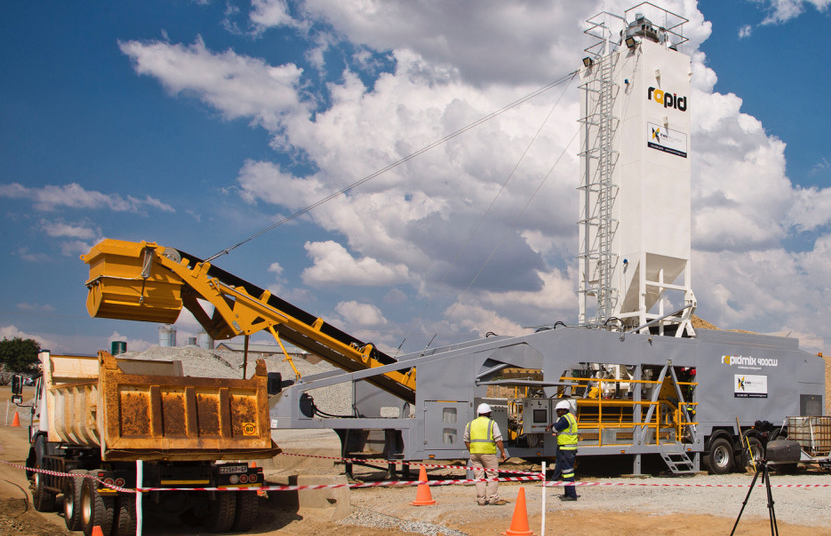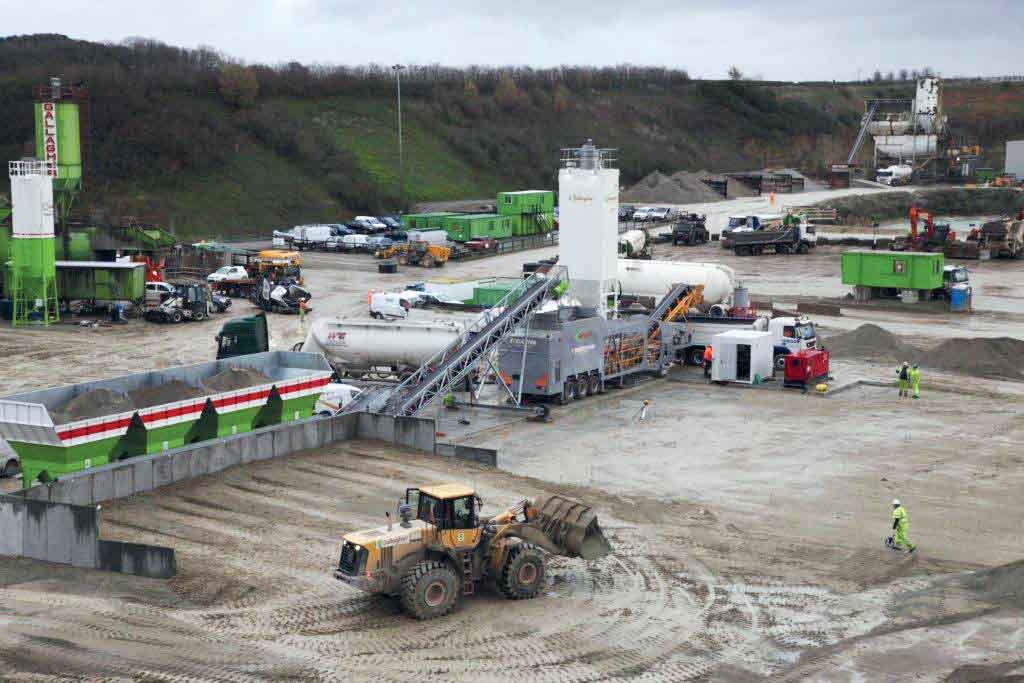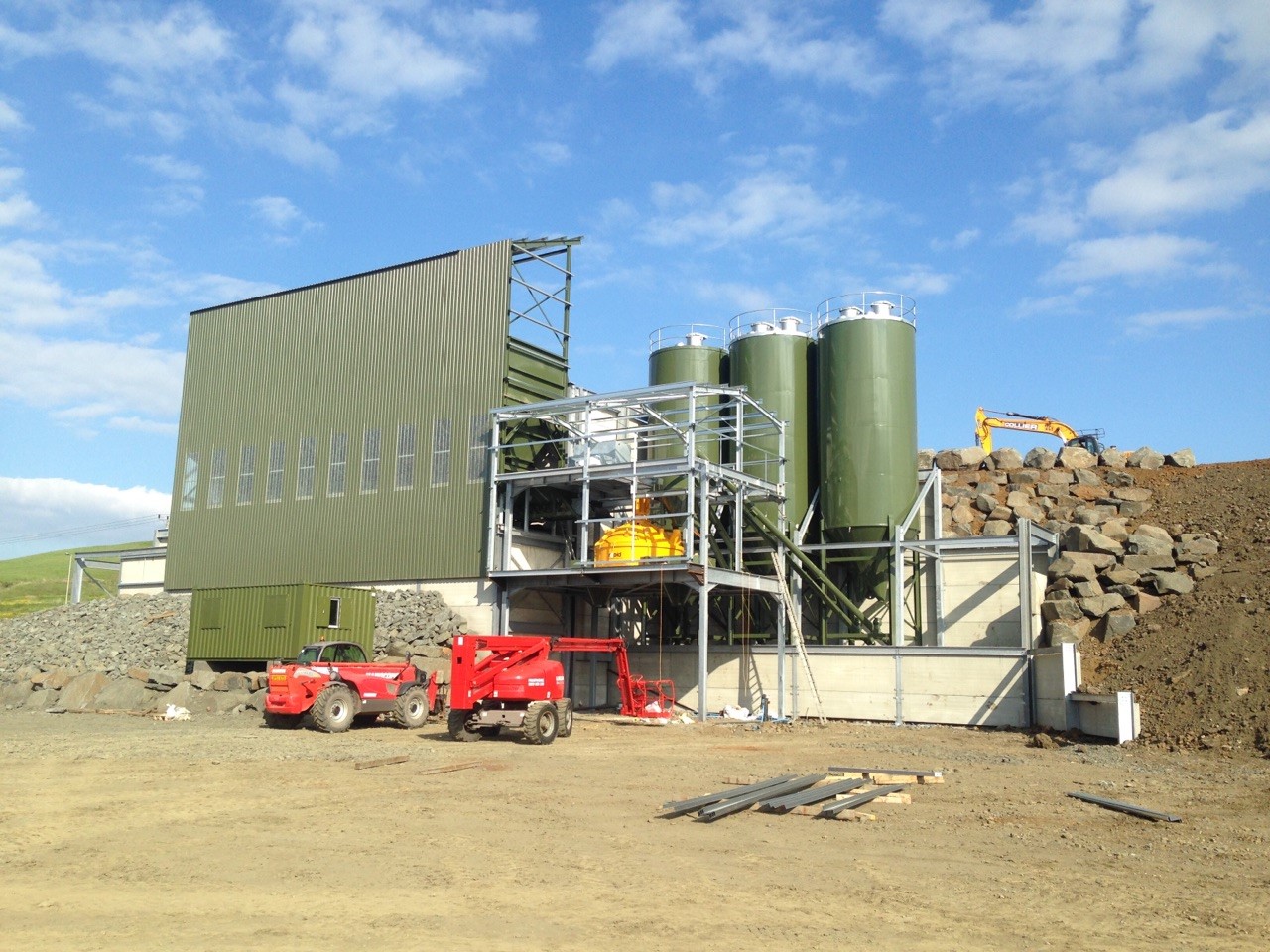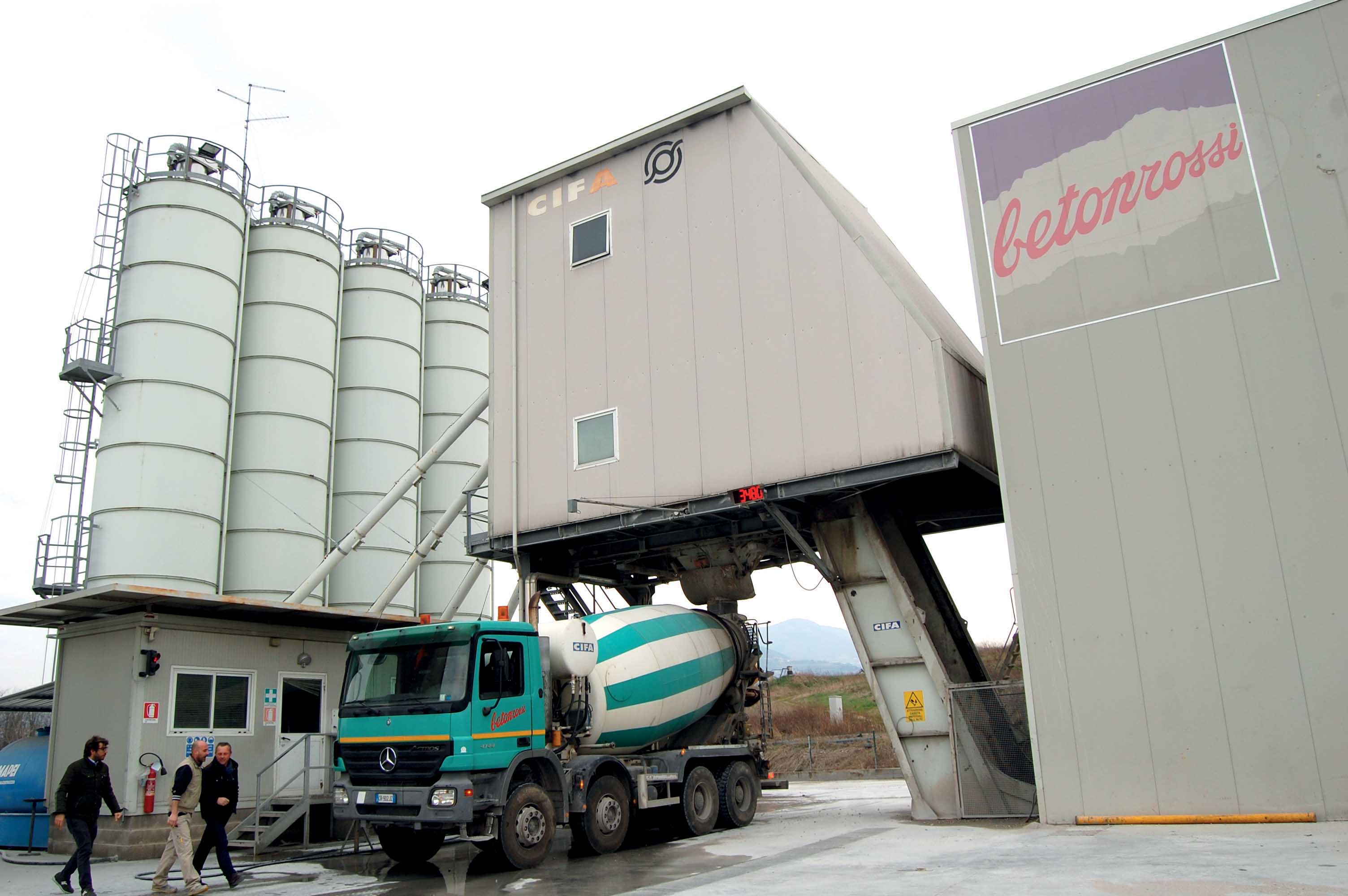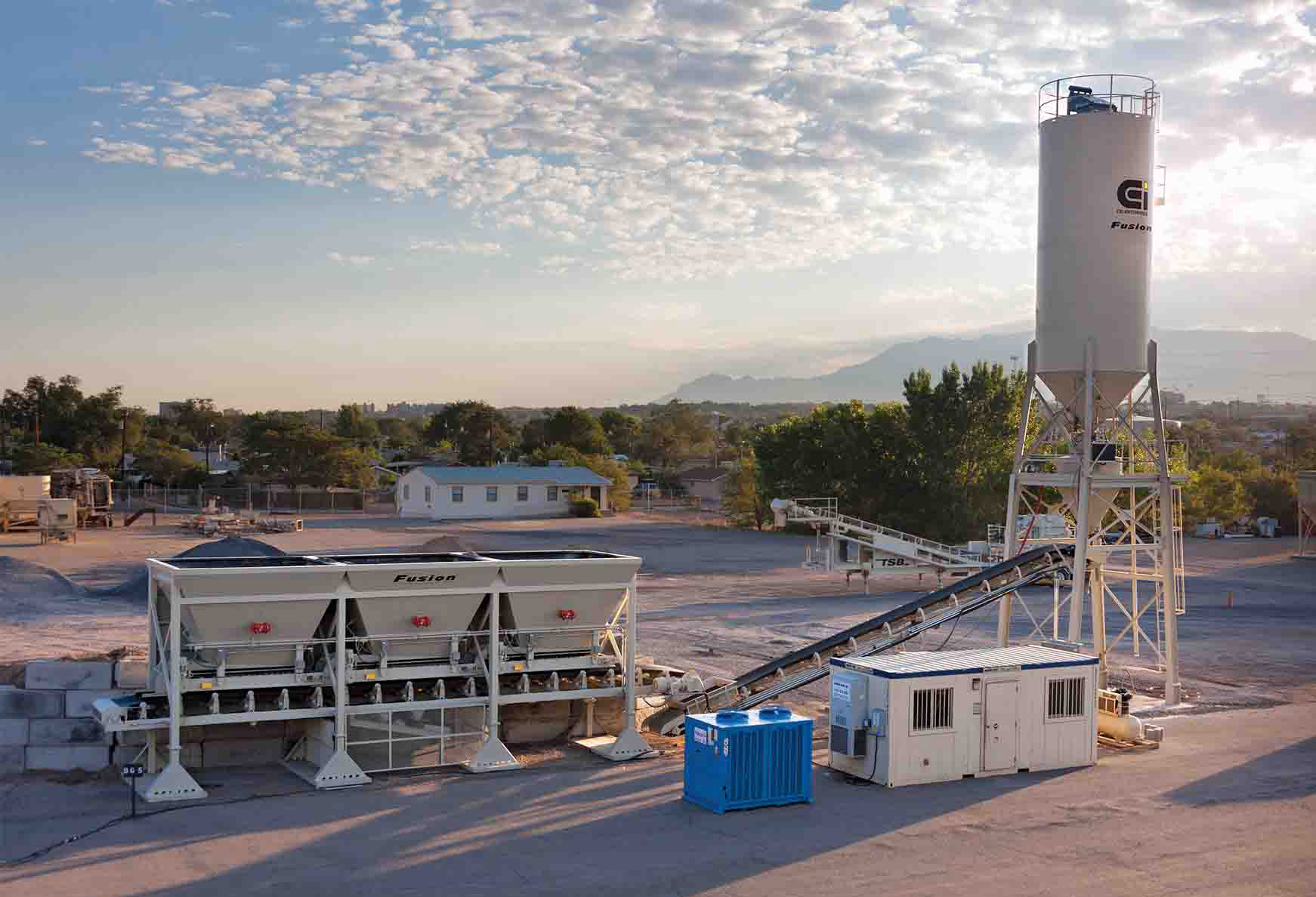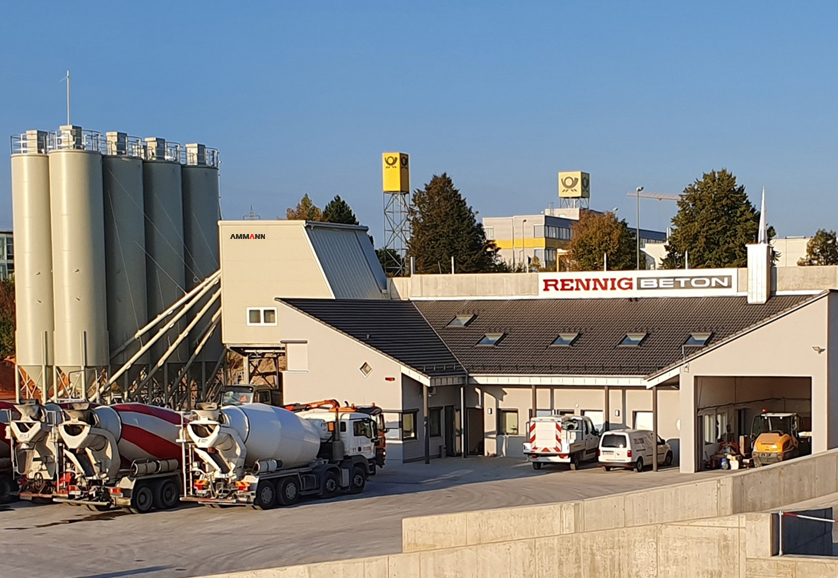
A German concrete producer, Rennig Beton, is now benefiting from a new concrete plant. The firm has installed its third plant at a site to the north of Augsburg in Southern Germany, located close to the Augsburg-West junction of the A8.
Rennig Beton supplies the Augsburg district and surrounding area with standard and special concrete, including a wide array of concrete recipes that range from the non-reinforced variant to highly corrosive types for filling stations and road surfaces.
The site near Augsburg offers sufficient space for an operation designed to be efficient and to offer minimal environmental impact. The site features a mixing plant, a large intermediate material store, a computer-controlled residual concrete recycling plant connected to a ready-mixed concrete plant and a truck mixer washing plant with integrated wastewater recycling.
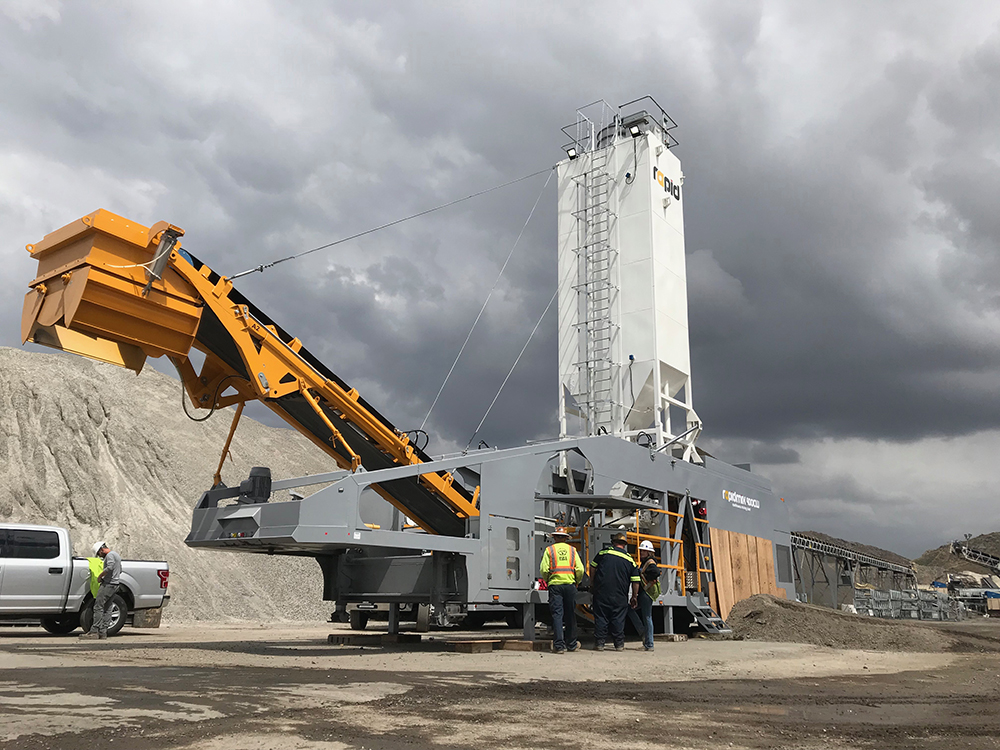
The differences in height on the 10,000m2 site had prompted the two technical plant managers to choose a linear mixing plant, with linear bins fed directly from trucks. The managers opted for a mixing plant from Ammann, a CBS 120 SL Elba, which features a greater storage capacity than a conventional tower type plant. Storage was crucial for the client, which stores a wide variety of binding agents and aggregates.
The skip version delivers up to 121m3 of standard concrete/hour in continuous operation. The modular design allows operators to produce almost 3,000 concrete recipes. In particular, aggregate use is precisely matched to the requirements of the operation: Steel and synthetic fibres are fed from a separate hopper by a feeding device placed directly above the weighing belt.
Six cement silos are installed at the site, each with a 100tonne capacity and all with a TRF filter system and an overfill protection system. Aggregates are fed directly onto the weighing belt, which delivers the material to the skip. This discharges into the mixer via the mixer inlet flap. Pre-tempering is said to ensure a high output quality in the cold season. A heating system heats the aggregates with hot air, while the mixing water is also pre-tempered. In addition, large EZL 80/100 cement screws conveyors provide the required dosing capacity.
The plant is equipped with a CEM 2660 S Elba single-shaft mixer, technology being used for the first time in Rennig's plants. With its 2.66m3 batch size, it is said to be suited to use with special concretes. Equipped with Elba Wear Protection (EWP), the mixer is designed for longevity and is said to require little maintenance. An integrated mixer cleaner is installed, while internal shaft seals and external shaft bearings prevent concrete fluid from damage and boost service life.
The plant is controlled by a PTB-approved PLC certified control system, which is used by Rennig in other plants and was selected as it was specially developed for concrete production. However, the finished concrete is also visually checked by a trough mixer camera, to ensure a high-quality product.
In the US, Rapid International recently commissioned a new Rapidmix 400CW, fully weighed, mobile continuous mixing plant (pugmill) for Pavement Recycling Systems. The new Rapidmix is being used initially for the production of roller compacted concrete (RCC) for a redevelopment project. The plant is also producing RCC and various other materials for future projects across California and other Western US States.
After securing its first RCC project, Pavement Recycling Systems realised it needed a mobile continuous mixing plant solution. Pavement Recycling Systems then made the decision to rent a Rapidmix 400 mobile continuous mixing plant on an initial trial basis.
With the trial of the plant proving successful and wanting to take advantage of the weighing technology of newer generation plants from Rapidmix, Pavement Recycling Systems then opted to buy the latest Rapidmix 400CW model.
The production process for RCC involves the plant receiving aggregates from the plant’s aggregate hopper via the weighed conveyor belt, along with a specified weighed amount of cement from the onboard silo. This is mixed in the onboard pugmill and loaded into trucks through the conveyor. The materials are finally loaded into pavers with compaction screeds and laid at 94% compaction. Compacting rollers are finally used to further compact the material to 98%.
Shortly after it is laid, the RCC is sufficiently strong enough to support traffic and further operations all the way to the edge of the step.
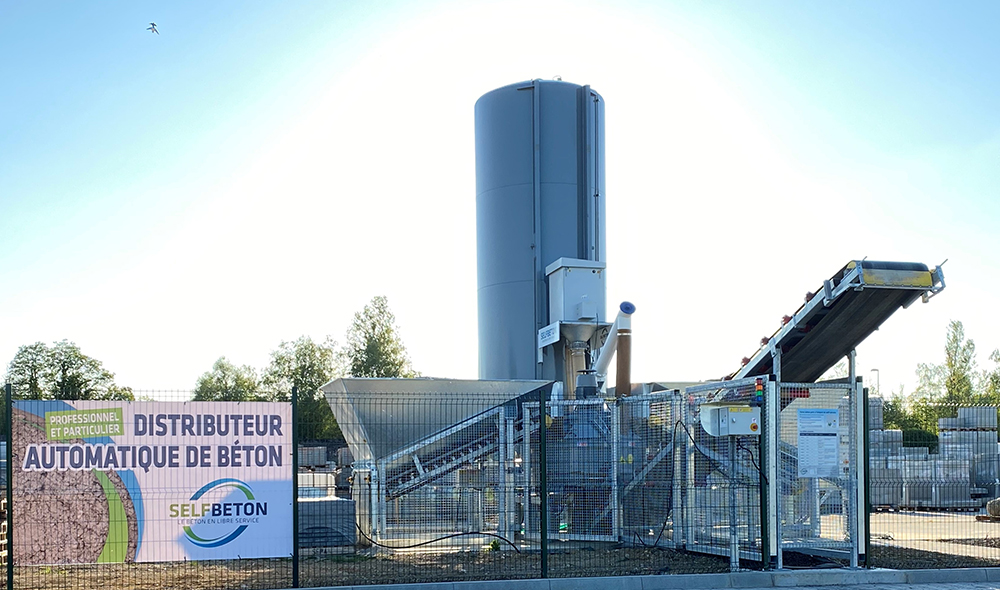
The Rapidmix 400CW/600CW is a mobile continuous mixing plant/ pugmill offering full weighing of all materials and is specifically designed for semi-dry mixing applications.
Fully mobile and self-contained, the Rapidmix 400CW is a complete plant powered by its own power source, with onboard compressor and generator. Fitted with a self-erecting system, using hydraulics, the plant can change from travel mode to fully operational within a few hours. Available with outputs of up to 600tonnes/hour, the Rapidmix provides feed rates that are fully adjustable for the aggregate, cement and water systems.
And in France, Selfbeton has now developed a new system for automatic ready-mix concrete distribution. The first unit has been installed at a French producer, SILIX based in Hagondange in the Moselle Region, and is said to be operating successfully.
According to SILIX, the new Selfbeton unit is simple in design and can speed up concrete supply, reducing waiting times for customers at concrete plants. The system is designed only to supply the correct quantity of concrete needed and also helps reduce power requirements.
The system is compact. The basic SB2T unit comprises a 29m3 cement silo linked to a 500litre capacity mixer with a diameter of 1.9m, a hopper and an 8m-long belt conveyor. However, customers can also select a 1m3 capacity hopper with a diameter of 2.6m should they require larger batches and this forms the basis of the more productive SB2TXL unit.
The SB2T system can deliver 15m3/hour, while the SB2TXL variant can deliver 30m3/hour. The SB2T requires an area of 80m2 for installation, while the SB2TXL with its larger mixer requires 90m2. The SB2T version features an 18.5kW motor and draws a current of 32A while the SB2TXL features a motor rated at 37kW and draws 63A.



